Mô tả
Datasheet excerpt: Technical data of OCT300-M1K-N2
| Product Description |
|---|
| Diffuse mode sensor, NAMUR, special design, 300 mm detection range, infrared light, light/dark on, DC version, NAMUR output, terminal compartment |
General specifications | ||
|---|---|---|
| Detection range | 0 … 300 mm | |
| Adjustment range | 70 … 300 mm | |
| Reference target | standard white 200 mm x 200 mm | |
| Light source | IRED , 880 nm | |
| Light type | modulated infrared light | |
| Ambient light limit | ≤ 40000 Lux sun light ≤ 30000 Lux halogen light | |
| Temperature influence | ≤ 0.5 mm/K | |
| Functional safety related parameters | ||
| MTTFd | 1319 a | |
| Mission Time (TM) | 20 a | |
| Diagnostic Coverage (DC) | 0 % | |
| Indicators/operating means | ||
| Function indicator | LED yellow: switching state | |
| Control elements | Sensing range adjuster | |
Electrical specifications | ||
| Operating voltage | 6 … 20 V DC (Ri approx. 0 Ohm) | |
| Ripple | 5 % | |
| Time delay before availability | 20 ms | |
| Output | ||
| Switching type | light/dark on, programmable | |
| Signal output | 1 NAMUR output NC/NO programmable | |
| Switching voltage | 8 V DC (Ri approx. 1 kΩ) | |
| Switching frequency | ≤ 100 Hz | |
| Current consumption | ||
| Reference target detected | connection 1, 2: ≤ 1 mA connection 3, 4: ≥ 2.7 mA | |
| Reference target not detected | connection 1, 2: ≥ 2.7 mA connection 3, 4: ≤ 1 mA | |
| Response time | 5 ms | |
| Repeat accuracy | ≤ 0.5 % of the sensing range | |
| Conformity | ||
| Product standard | EN 60947-5-2 | |
| Compliance with standards and directives | ||
| Standard conformity | ||
| Standards | EN 60947-5-6:2000 | |
Approvals and certificates | ||
| FM approval | ||
| Approved for | IS / I,II,III / 1 / ABCDEFG / T5 – 116-0110; Entity NI / I / 2 / ABCD / T6 Entity Parameters: VMax = 12.6 V, IMax = 20 mA, Ci = 1.11 µF, Li = 0 mH (Groups A, B, C, D, E, F, G). VMax = 15.5 V, IMax = 52 mA, Ci = 1.11 µF, Li = 0 mH (Groups C, D, E, F, G). | |
CSA approval | ||
| Approved for | Class I, Division 2, Groups A, B, C and D Rated 20V (max), 50mA. These sensors are suitable for installation in (or through the wall of) a suitable enclosure with provision for connection of rigid metal conduit, as acceptable to the local inspection authority having jurisdiction. | |
| CCC approval | CCC approval / marking not required for products rated ≤36 V | |
| Ambient conditions OCT300-M1K-N2 | ||
| Ambient temperature | -25 … 70 °C (-13 … 158 °F) | |
| Storage temperature | -40 … 80 °C (-40 … 176 °F) | |
| Mechanical specifications | ||
| Housing width | 30 mm | |
| Housing height | 30 mm | |
| Housing depth | 102 mm | |
| Degree of protection | IP20 | |
| Connection | M16 terminal compartment, core cross section ≤ 2.5 mm2 | |
| Material | ||
| Housing | PBT | |
| Optical face | Scratch resistant mineral glass lens | |
| Mass | 100 g | |
ATEX G | ||
| EC-Type Examination Certificate | PTB 01 ATEX 2203 X | |
| Applicant | Pepperl+Fuchs GmbH, Lilienthalstrasse 200, 68307 Mannheim, Germany | |
| CE marking | CE0102 | |
| ATEX marking | Zone 1:  II 2G Ex ia op is IIC T6…T1 Gb II 2G Ex ia op is IIC T6…T1 Gb | |
| Directive conformity | 2014/34/EU | |
| Standards | EN 60079-0:2012+A11:2013 EN 60079-11:2012 EN 60079-28:2007 | |
| Effective internal capacitance Ci | max. 75 nF | |
| Effective internal inductance Li | negligibly small | |
| General | The apparatus must be operated in accordance with the data provided in the datasheet and this operating instruction. In particular, the maximum rated voltage and the temperature range must be adhered to. The special conditions must be adhered to! The EU-type examination certificate has to be observed. | |
| Ambient temperature | The temperature ranges, according to temperature class, are given in the EC-Type Examination Certificate. | |
| Installation, commissioning | The associated apparatus must, as a minimum, fulfill the requirements for degree of protection ia and for Groups II or III, as appropriate for the operating conditions. Due to the possible risk of ignition that can occur as a result of faults and/or transient currents in the equipotential bonding system, galvanic isolation in the supply and signal current circuit is preferred. Associated apparatus without galvanic isolation may only be used if the appropriate requirements as set out in IEC 60079-14 are met. The intrinsic safety is only assured in connection with an appropriate related apparatus and according to the proof of intrinsic safety. | |
| Maintenance | No modifications must be undertaken on apparatus, which is operated in hazardous areas. Repairs to such apparatus are not permissible. | |
Special conditions | OCT300-M1K-N2 | |
| Protection from mechanical danger | When used in the temperature range below -20 °C the sensor should be protected from knocks by the provision of an additional housing. | |
| Degree of protection required when installing connecting components | IP20 according to IEC 60529:2001 | |
| Other conditions | Refer to the relevant EC type examination certificate to see the relationship between the connected circuit type, the maximum permitted ambient temperature and the temperature class as well as effective inner reactances. | |
ATEX D (OCT300-M1K-N2) | ||
| EC-Type Examination Certificate | ZELM 03 ATEX 0196 X | |
| Applicant | Pepperl+Fuchs GmbH, Lilienthalstrasse 200, 68307 Mannheim, Germany | |
| CE marking | CE0102 | |
| ATEX marking | Zone 20/21:  II 1D Ex ia IIIC T 135°C Da II 1D Ex ia IIIC T 135°C Da | |
| Directive conformity | 2014/34/EU | |
| Standards | EN 60079-0:2012+A11:2013 EN 60079-11:2012 EN 60079-28:2007 | |
| Effective internal capacitance Ci | max. 1200 nF | |
| Effective internal inductance Li | negligibly small | |
| General | The apparatus must be operated in accordance with the data provided in the datasheet and this operating instruction. In particular, the maximum rated voltage and the temperature range must be adhered to. The special conditions must be adhered to! The EU-type examination certificate has to be observed. | |
| Ambient temperature | -25 … 70 °C (-13 … 158 °F) | |
| Installation, commissioning | The associated apparatus must, as a minimum, fulfill the requirements for degree of protection ia and for Groups II or III, as appropriate for the operating conditions. Due to the possible risk of ignition that can occur as a result of faults and/or transient currents in the equipotential bonding system, galvanic isolation in the supply and signal current circuit is preferred. Associated apparatus without galvanic isolation may only be used if the appropriate requirements as set out in IEC 60079-14 are met. This certificate does not guarantee that the components installed in the partition isolate the zones completely from one another. Appropriate measures must be taken when the partition is set up to ensure the zones are completely isolated. | |
| Maintenance | No modifications must be undertaken on apparatus, which is operated in hazardous areas. Repairs to such apparatus are not permissible. | |
Special conditions | OCT300-M1K-N2 | |
| Protection against dangerous electrostatic charging | The device must be installed such that electrostatic discharges can be avoided. If the device is installed in accordance with the instructions provided by the manufacturer, no dangerous electrostatic charge is to be expected given the properties of the device. | |
| Protection from mechanical danger | When used in the temperature range below -20 °C the sensor should be protected from knocks by the provision of an additional housing. | |
| Degree of protection required when installing connecting components | IP20 according to IEC 60529:2001 | |
| Other conditions | Refer to the relevant EC type examination certificate to see the relationship between the connected circuit type, the maximum permitted ambient temperature and the surface temperature class. In applications where high levels of charge are expected (e.g. electrostatic paint, foil manufacture, dust extraction, mechanical friction), structural measures must be taken to limit the surface area of the plastic housing exposed to this charge to approximately 15 cm2 in order to avoid propagating brush discharge. When setting up a partition between different zones, appropriate measures must be taken to ensure that the components installed in the partition isolate the zones completely from one another. | |
IECEx G (OCT300-M1K-N2) | ||
| Certificate number | IECEx PTB 12.0060 X | |
| Applicant | Pepperl+Fuchs GmbH, Lilienthalstrasse 200, 68307 Mannheim, Germany | |
| IECEx marking | Zone 1:  II 2G Ex ia op is IIC T6…T1 Gb II 2G Ex ia op is IIC T6…T1 Gb | |
| Standards | IEC 60079-0:2011 IEC 60079-11:2011 IEC 60079-28:2006 | |
| Effective internal capacitance Ci | max. 75 nF | |
| Effective internal inductance Li | negligibly small | |
| General OCT300-M1K-N2 | The apparatus must be operated in accordance with the data provided in the datasheet and this operating instruction. In particular, the maximum rated voltage and the temperature range must be adhered to. The special conditions must be adhered to! The IECEx certificate must be observed. | |
| Ambient temperature | The temperature ranges, according to temperature class, are given in the EC-Type Examination Certificate. | |
| Installation, commissioning | The associated apparatus must, as a minimum, fulfill the requirements for degree of protection ia and for Groups II or III, as appropriate for the operating conditions. Due to the possible risk of ignition that can occur as a result of faults and/or transient currents in the equipotential bonding system, galvanic isolation in the supply and signal current circuit is preferred. Associated apparatus without galvanic isolation may only be used if the appropriate requirements as set out in IEC 60079-14 are met. The intrinsic safety is only assured in connection with an appropriate related apparatus and according to the proof of intrinsic safety. | |
| Maintenance | No modifications must be undertaken on apparatus, which is operated in hazardous areas. Repairs to such apparatus are not permissible. | |
| Special conditions OCT300-M1K-N2 | ||
| Protection from mechanical danger | When used in the temperature range below -20 °C the sensor should be protected from knocks by the provision of an additional housing. | |
| Degree of protection required when installing connecting components | IP20 according to IEC 60529:2001 | |
| Other conditions | Refer to the relevant EC type examination certificate to see the relationship between the connected circuit type, the maximum permitted ambient temperature and the temperature class as well as effective inner reactances. | |
IECEx D OCT300-M1K-N2 | ||
| Certificate number | IECEx ZLM 12.0005X | |
| Applicant | Pepperl+Fuchs GmbH, Lilienthalstrasse 200, 68307 Mannheim, Germany | |
| IECEx marking | Ex ia IIIC T135°C Da | |
| Standards | IEC 60079-0:2011 IEC 60079-11:2011 | |
| Effective internal capacitance Ci | max. 1200 nF | |
| Effective internal inductance Li | negligibly small | |
| General OCT300-M1K-N2 | The apparatus must be operated in accordance with the data provided in the datasheet and this operating instruction. In particular, the maximum rated voltage and the temperature range must be adhered to. The special conditions must be adhered to! The IECEx certificate must be observed. | |
| Ambient temperature | -25 … 70 °C (-13 … 158 °F) | |
| Installation, commissioning | The associated apparatus must, as a minimum, fulfill the requirements for degree of protection ia and for Groups II or III, as appropriate for the operating conditions. Due to the possible risk of ignition that can occur as a result of faults and/or transient currents in the equipotential bonding system, galvanic isolation in the supply and signal current circuit is preferred. Associated apparatus without galvanic isolation may only be used if the appropriate requirements as set out in IEC 60079-14 are met. This certificate does not guarantee that the components installed in the partition isolate the zones completely from one another. Appropriate measures must be taken when the partition is set up to ensure the zones are completely isolated. | |
| Maintenance | No modifications must be undertaken on apparatus, which is operated in hazardous areas. Repairs to such apparatus are not permissible. | |
Special conditions | OCT300-M1K-N2 | |
| Protection against dangerous electrostatic charging | The device must be installed such that electrostatic discharges can be avoided. If the device is installed in accordance with the instructions provided by the manufacturer, no dangerous electrostatic charge is to be expected given the properties of the device. | |
| Protection from mechanical danger | When used in the temperature range below -20 °C the sensor should be protected from knocks by the provision of an additional housing. | |
| Degree of protection required when installing connecting components | IP20 according to IEC 60529:2001 | |
| Other conditions | When setting up a partition between different zones, appropriate measures must be taken to ensure that the components installed in the partition isolate the zones completely from one another. | |
Classifications OCT300-M1K-N2
| System | Classcode |
|---|---|
| ECLASS 11.0 | 27270903 |
| ECLASS 10.0.1 | 27270903 |
| ECLASS 9.0 | 27270903 |
| ECLASS 8.0 | 27270903 |
| ECLASS 5.1 | 27270903 |
| ETIM 8.0 | EC001821 |
| ETIM 7.0 | EC001821 |
| ETIM 6.0 | EC001821 |
| ETIM 5.0 | EC001821 |
| UNSPSC 12.1 | 39121528 |




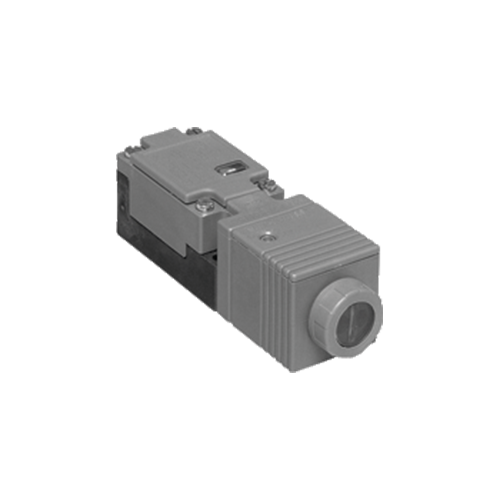
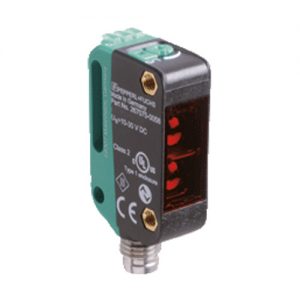
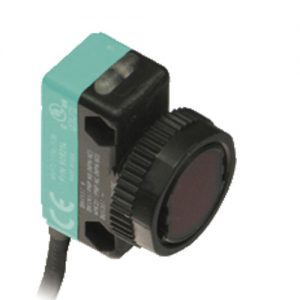
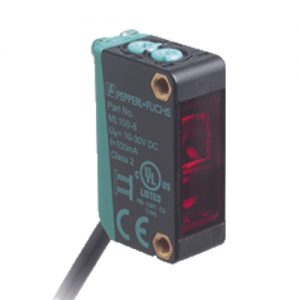
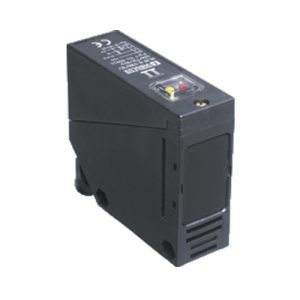


Đánh giá
Chưa có đánh giá nào.